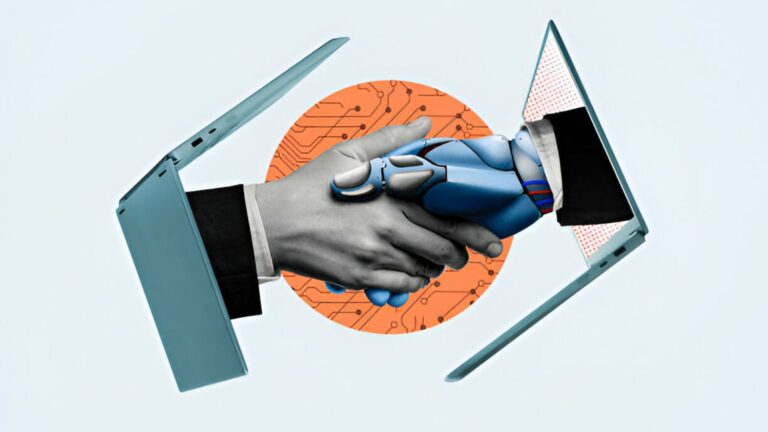A Thoughtful Question in a Changing World
It was during a recent strategy meeting when one of our analysts, sharp and observant, raised a question that I knew was coming sooner or later: “With AI capable of predicting trends, optimizing logistics, and even suggesting strategic pivots, do you think it could ever lead a company like ours?”
There was no hesitation in their voice, no smirk suggesting it was a joke—just genuine curiosity. And it was a fair question. After all, we’re living in a world where AI algorithms already drive cars, diagnose diseases, and compose music.
Why shouldn’t we consider the possibility of an AI-powered CEO?
But leadership isn’t just about decisions—it’s about vision, responsibility, and trust. And as I considered their question, I realized that while AI might become the most valuable advisor in the boardroom, it could never replace the person sitting at the head of the table.

The Algorithm’s Edge: Data Without Emotion
AI is already reshaping the way we lead. It detects patterns, analyzes global shifts, and predicts market behaviors with astonishing speed and precision. It works tirelessly, free from bias, fatigue, or fear.
In logistics, AI optimizes delivery routes to the millisecond. In customer engagement, it personalizes experiences at a scale no human team could ever manage. On a spreadsheet, AI looks unbeatable.
But here’s the thing: leadership isn’t done on a spreadsheet.
Decisions that define a company’s trajectory often live in spaces data cannot reach—spaces filled with human emotion, unquantifiable risks, and gut instinct.
Leadership is Not Binary
There was a moment last year when one of our projects faced an unexpected crisis. Every AI model suggested we cut our losses and pull back. Logically, it was the right choice.
But logic didn’t account for the determination I saw in the eyes of my team. It didn’t factor in the momentum we had built, the sacrifices already made, and the belief that we could still pull through.
So I made the call to move forward, despite what the dashboards said. And it worked—not because I outsmarted the AI, but because leadership often requires betting on the intangible.
That’s the difference. AI can tell us what to do based on patterns, but it can’t understand why we sometimes choose to defy those patterns.

The Future is Partnership, Not Replacement
The question isn’t whether AI will replace CEOs—it’s how CEOs will embrace AI as their most powerful ally.
The leaders of tomorrow won’t dismiss AI out of fear, nor will they hand over the reins blindly. They’ll collaborate with AI to refine their vision, validate their instincts, and move with clarity.
Imagine a CEO armed with AI-powered insights—capable of seeing market risks before they materialize, understanding customer behavior in unprecedented detail, and optimizing operations with surgical precision.
But in the final moments—when a choice needs to be made that defines the company’s future—it won’t be AI making that call. It will be a human leader with a blend of data, intuition, and courage.
Where We Stand Today
So, readers, can AI replace CEOs? No.
But can CEOs who ignore AI remain relevant? Also no.
The future belongs to leaders who understand that AI isn’t here to take their place—it’s here to amplify their impact.
Because leadership isn’t about having the most data. It’s about knowing how to use it.
And that, I believe, will always be a distinctly human skill.
Regards,
Rupesh